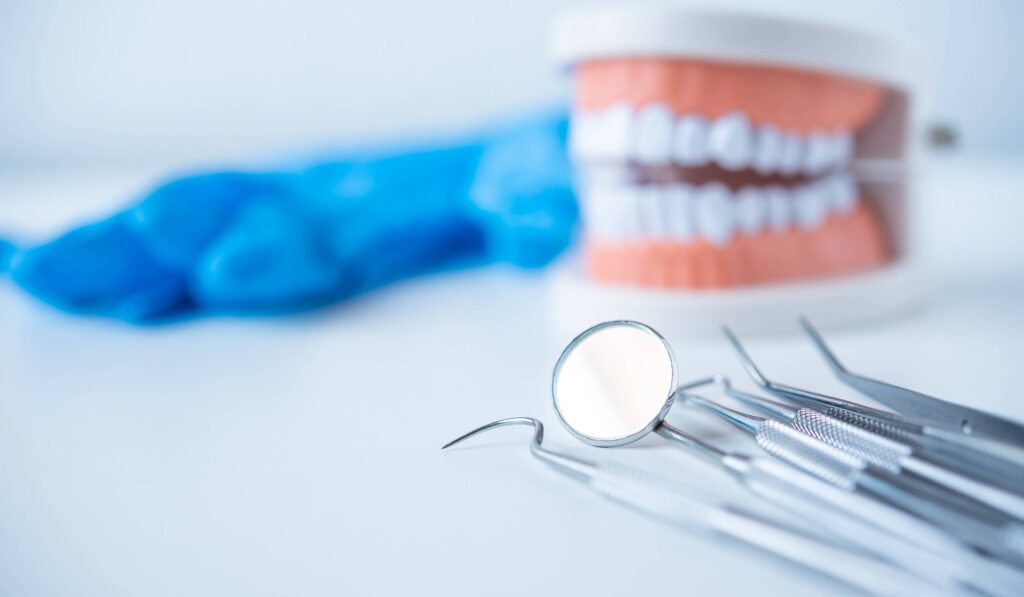In the modern digital era, dentists are realizing the importance of online advertising to attract new patients and grow their dental practices. Pay-Per-Click (PPC) advertising has emerged as a powerful tool allowing dentists to target their audience effectively, increase brand visibility, and drive qualified website traffic. This article explores the world of PPC advertising for dentists, delving deeper into its benefits, strategies, and techniques to help dental practices achieve their goals.
Benefits of PPC Advertising for Dentists
- Increased Visibility: PPC allows dentists to gain instant visibility on search engines and social media platforms, ensuring their ads are seen by a larger audience.
- Targeted Reach: PPC enables precise targeting based on factors such as location, demographics, and search intent, ensuring ads are shown to the right people at the right time.
- Cost Control: Dentists have complete control over their PPC budgets, allowing them to set daily or monthly limits and pay only for actual clicks.
- Immediate Results: Unlike other forms of online marketing, PPC campaigns can yield quick results, generating traffic, leads, and conversions within a short span of time.
Key Elements of a Successful PPC Campaign
To run a successful PPC campaign, dentists need to focus on several key elements:
Choosing the Right Keywords
Keyword research is crucial in PPC advertising. Dentists should identify relevant keywords that potential patients will likely use when searching for dental services. Tools like Google Keyword Planner can help discover high-impact keywords with reasonable search volumes and low competition.
Crafting Compelling Ad Copy
The ad copy should be concise, compelling, and tailored to resonate with the target audience. Dentists should highlight their unique selling points (USPs) and include a clear call-to-action (CTA) to encourage users to take the desired action, such as scheduling an appointment or contacting the dental practice.
Creating Landing Pages that Convert
Landing pages play a vital role in PPC campaigns. Dentists should create dedicated landing pages that align with the ad copy and provide relevant information. These pages should be optimized for conversions, with prominent contact forms, easy navigation, and persuasive content.
Optimizing Campaigns for Maximum ROI
Regular optimization is essential to maximize PPC campaigns’ return on investment (ROI). Dentists should monitor and refine their campaigns, adjusting bids, testing new ad variations, and fine-tuning targeting parameters to improve performance.
Monitoring and Analyzing PPC Performance
Dentists should track and analyze key performance metrics, such as click-through rates (CTR), conversion rates, and cost per acquisition (CPA). This data provides valuable insights into campaign performance, allowing for data-driven decisions and optimizations.
Remarketing Strategies for Dental Practices
Remarketing allows dentists to re-engage with users who have previously interacted with their website or ads. By showing targeted ads to these users, dental practices can nurture leads, encourage repeat visits, and increase brand recall.
The Role of A/B Testing in PPC Campaigns
A/B testing involves running two or more variations of an ad or landing page simultaneously to determine which one performs better. Dentists can leverage A/B testing to optimize their PPC campaigns by testing different headlines, images, CTAs, or landing page layouts, ultimately improving overall campaign performance.
Local PPC Advertising for Dentists
Local PPC advertising focuses on targeting users within a specific geographical area. For dentists, this means reaching out to potential patients in their local community. Local PPC strategies, such as geotargeting and local keyword optimization, help dentists attract patients who are more likely to convert into actual appointments.
More Strategies of PPC for Dentists
Ad Extensions for Enhanced Visibility: Dentists can utilize ad extensions to provide additional information and increase the visibility of their PPC ads. Extensions such as sitelink, call, and location extensions can enhance the ad’s appeal and make it more engaging for potential patients.
Negative Keywords Optimization: By identifying and incorporating negative keywords into their PPC campaigns, dentists can prevent their ads from appearing in irrelevant search queries. This optimization technique helps improve campaign efficiency and ensures that the budget is spent on highly relevant searches.
Mobile Optimization: With most internet users accessing information through mobile devices, dentists must optimize their PPC campaigns for mobile platforms. Creating mobile-friendly landing pages, using ad formats suitable for mobile screens, and implementing click-to-call extensions can enhance the user experience and increase conversions.
Localized Ad Targeting: Dental practices primarily serve local communities. Dentists can leverage geotargeting features in PPC platforms to focus their ads on specific geographical areas where their target audience resides. This strategy ensures that the ads reach users who are more likely to convert into actual patients.
Competitor Targeting: Dentists can consider running PPC campaigns targeting their competitors’ brand names or services. By bidding on relevant keywords related to competitors’ names or services, dentists can appear alongside their competitors’ ads, potentially capturing the attention of users searching for alternative dental options.
Ad Scheduling: Dentists can optimize their PPC campaigns by adjusting ad scheduling based on peak hours and days when potential patients are most active. This strategy ensures that the ads are displayed at times when the target audience is more likely to engage, increasing the chances of conversion.
Seasonal Promotions and Special Offers: Offering seasonal promotions or special discounts through PPC campaigns can attract new patients and encourage existing ones to book appointments. Dentists can create specific ad groups or campaigns to promote these limited-time offers and generate immediate interest.
Consistent Ad: Testing and Optimization Continuous testing and optimization are crucial for improving PPC campaign performance. Dentists should experiment with different ad variations and test different headlines, ad copy, and CTAs to determine which ones generate the best response and highest conversion rates. Regular optimization based on performance data ensures ongoing improvement.
Social Media PPC Advertising In addition to search engine PPC, dentists can explore PPC advertising on social media platforms like Facebook, Instagram, or LinkedIn. These platforms offer highly targeted advertising options allowing dentists to reach specific demographics and engage with potential patients more socially.
Remarketing for Increased Conversions Implementing remarketing campaigns can help dentists re-engage with users who have previously shown interest in their dental services. By displaying targeted ads to these users across various platforms, dentists can reinforce their brand, nurture leads, and increase the likelihood of conversions.
PPC Budgeting and Cost Management
Effective budgeting and cost management are critical components of running a successful PPC campaign for higher conversion. Proper allocation of budget resources and continuous monitoring of campaign costs and performance are key to achieving optimal results and maximizing return on investment (ROI). Let’s delve deeper into this topic and explore additional sub-sections related to PPC budgeting and cost management.
Budget Allocation Strategies
Dentists should carefully assess their financial resources and determine the appropriate budget allocation for their PPC campaigns. It’s essential to consider factors such as the size of the dental practice, competition in the local market, and the desired goals and outcomes of the campaign.
Determining Campaign Goals
Dentists must define clear campaign objectives, such as increasing website traffic, generating leads, or promoting specific dental services. By aligning the budget with these goals, dentists can allocate resources more effectively and measure the success of their campaigns.
Competitive Analysis
Conducting a thorough competitive analysis helps dentists understand the PPC landscape in their local area. Analyzing competitors’ ad spend, strategies, and performance can provide insights into industry benchmarks and help determine an appropriate budget for outperforming competitors.
Optimizing PPC Budget Allocation
Keyword Research and Bid Management: Dentists should invest time and effort in comprehensive keyword research to identify valuable keywords that align with their campaign goals. Monitoring keyword performance and adjusting bids accordingly can ensure the optimal allocation of the PPC budget.
Segmenting Campaigns and Ad Groups: Segmenting campaigns and ad groups based on specific dental services, geographic locations, or target demographics allows dentists to allocate budgets more precisely. This approach ensures that resources are directed toward the areas that generate the highest ROI.
Dayparting and Ad Scheduling: Analyzing campaign data and identifying peak hours or days when potential patients are more likely to search for dental services can help dentists optimize their budget by focusing their ad spend during these periods.
Budget Pacing: Dentists should closely monitor their PPC campaign budgets and adjust pacing to ensure that resources are allocated evenly throughout the campaign duration. This prevents exhausting the budget too quickly and ensures a consistent presence in search engine results.
Monitoring and Analyzing Campaign Costs
Cost Per Click (CPC) Analysis: Dentists should analyze the CPC metrics to understand the average cost associated with each click on their ads. This analysis helps identify keywords or ad groups that may be generating higher costs without commensurate returns.
Conversion Tracking and Cost Per Acquisition (CPA): Implementing conversion tracking allows dentists to monitor the number of desired actions, such as appointment bookings or form submissions, resulting from PPC campaigns. Calculating the CPA provides insights into the cost-effectiveness of each conversion, enabling adjustments for better campaign performance.
Return on Ad Spend (ROAS): Analysis Dentists can measure the effectiveness of their PPC campaigns by analyzing the ROAS. This metric compares the revenue generated against the amount spent on advertising, clearly understanding the campaign’s profitability.
Budget Reallocation Regularly reviewing campaign performance and cost metrics allows dentists to identify areas where budget adjustments can be made for better results. Shifting resources from underperforming keywords or ad groups to more successful ones optimizes the budget allocation and enhances campaign performance.
Scaling and Growth Strategies
Incremental Budget Increases: As dentists observe positive results and ROI from their PPC campaigns, gradual increases in the budget can be considered. Incremental budget increases allow for controlled expansion, ensuring that the additional resources are efficiently utilized and aligned with the practice’s growth objectives.
Expanding Targeted Geographical Areas: If dentists are experiencing success in their local area, they may consider expanding their PPC campaigns to target a broader geographical region. Careful evaluation of market potential, competition, and budget capabilities helps dentists make informed decisions and maximize their reach.
Exploring New Advertising Platforms: Dentists can explore other advertising platforms beyond search engines, such as social media platforms, dental directories, or relevant niche websites. Diversifying PPC efforts across multiple platforms can broaden the audience reach and generate additional leads.
Hiring PPC Experts or Managing In-House?
Deciding whether to hire PPC experts or manage PPC campaigns in-house depends on the dental practice’s resources, expertise, and goals. While outsourcing PPC management to professionals offers specialized skills and industry knowledge, managing PPC in-house provides greater control and a deeper understanding of the practice’s unique requirements.
Conclusion
PPC advertising is an indispensable tool for dentists looking to expand their online presence, attract new patients, and achieve sustainable growth. By implementing effective PPC strategies, dentists can connect with their target audience, increase brand visibility, and drive valuable website traffic. With careful planning, continuous optimization, and a data-driven approach, PPC can deliver remarkable results and help dental practices thrive digitally.
Are you ready to take your dental practice to new heights? Harness the power of PPC advertising services in London to attract more patients, increase brand visibility, and drive valuable website traffic. Don’t miss out on the countless opportunities waiting for you in the digital landscape.
With our expert PPC services tailored specifically for dentists, you can:
- Gain instant visibility on search engines and social media platforms
- Reach your target audience precisely at the right time and place
- Control your budget and pay only for actual clicks
- Achieve immediate results and generate leads in no time
Don’t wait any longer. Start your PPC journey today and unlock the full potential of online advertising for your dental practice. Contact us now to get started!



